Numbers worksheets activities for 8-Year-Olds
6 filtered results
-
From - To
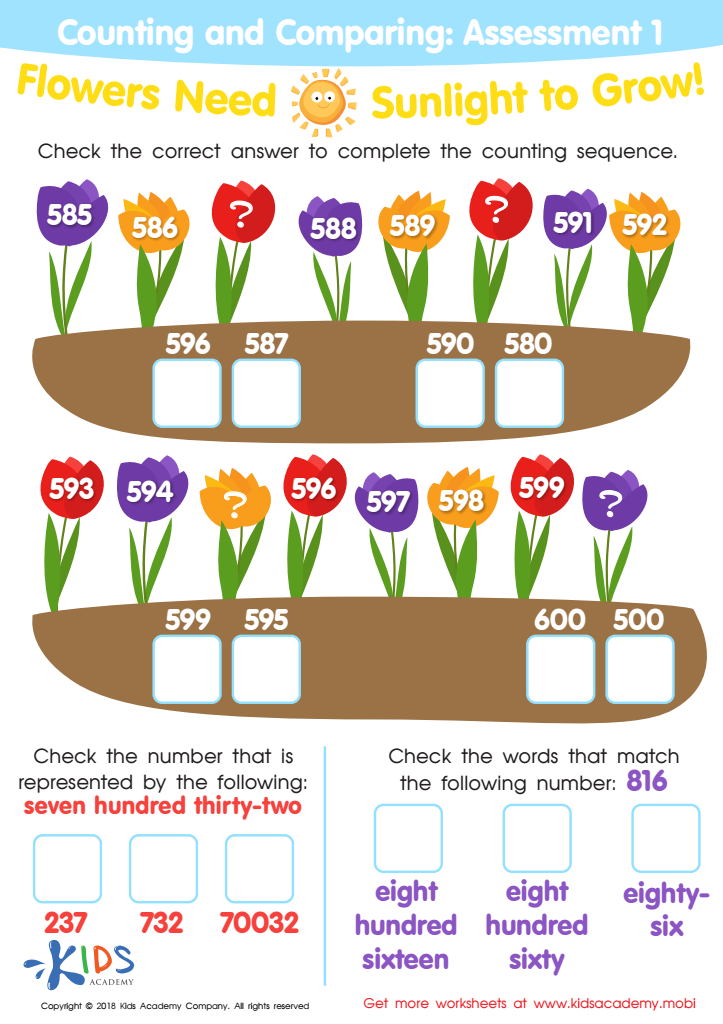

Counting and Comparing: Assessment 1 Worksheet
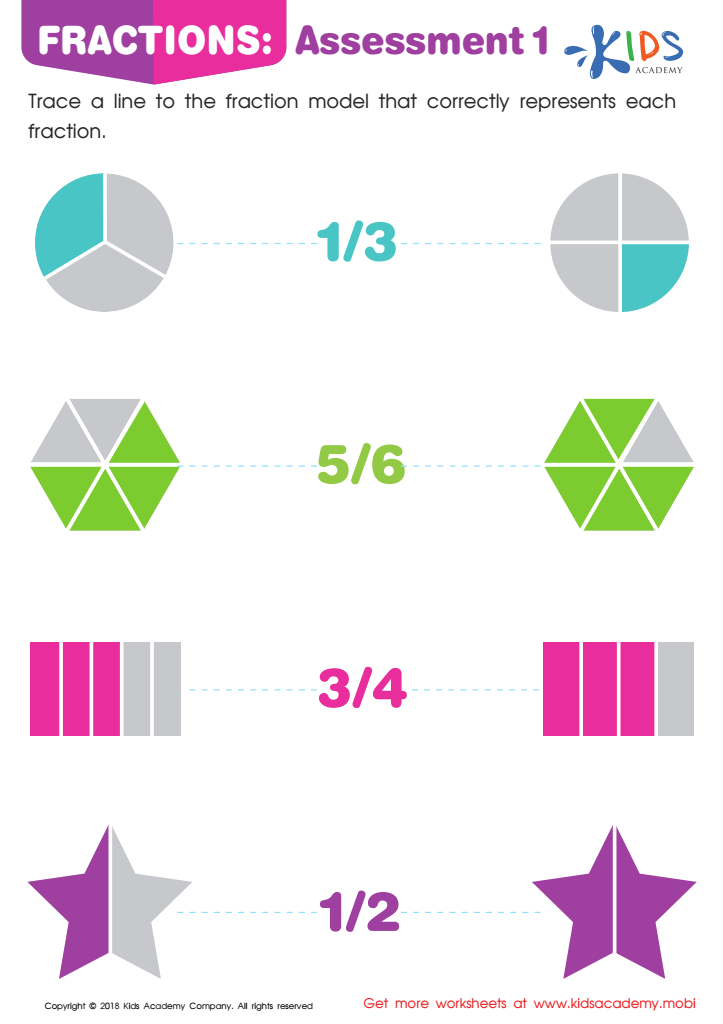

Fractions: Assessment 1 Worksheet
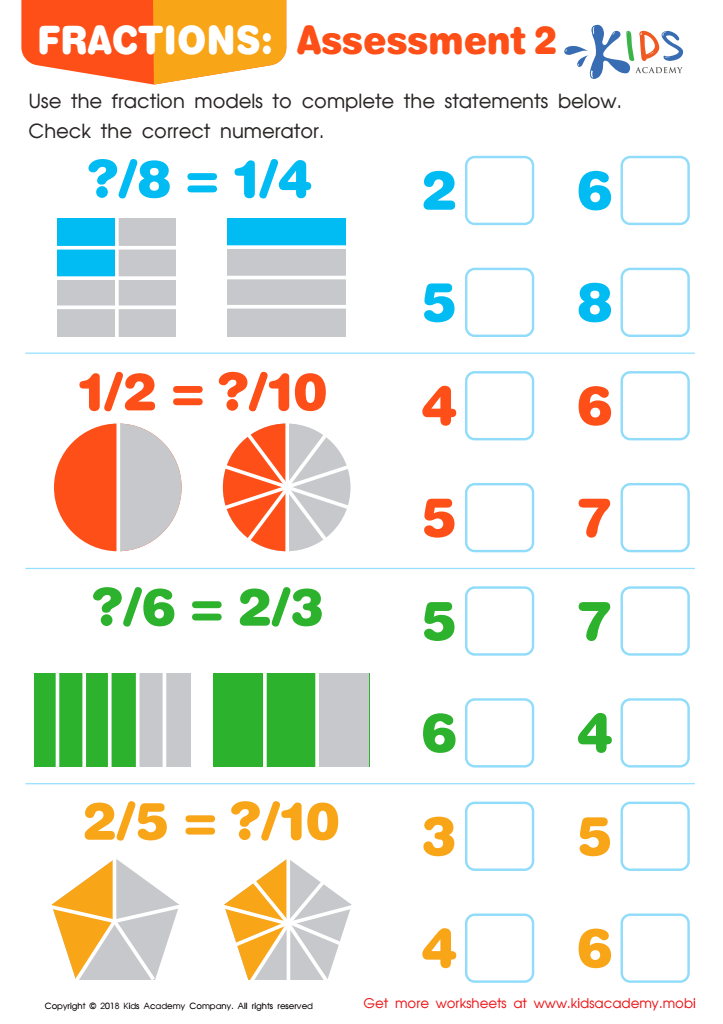

Fractions: Assessment 2 Worksheet
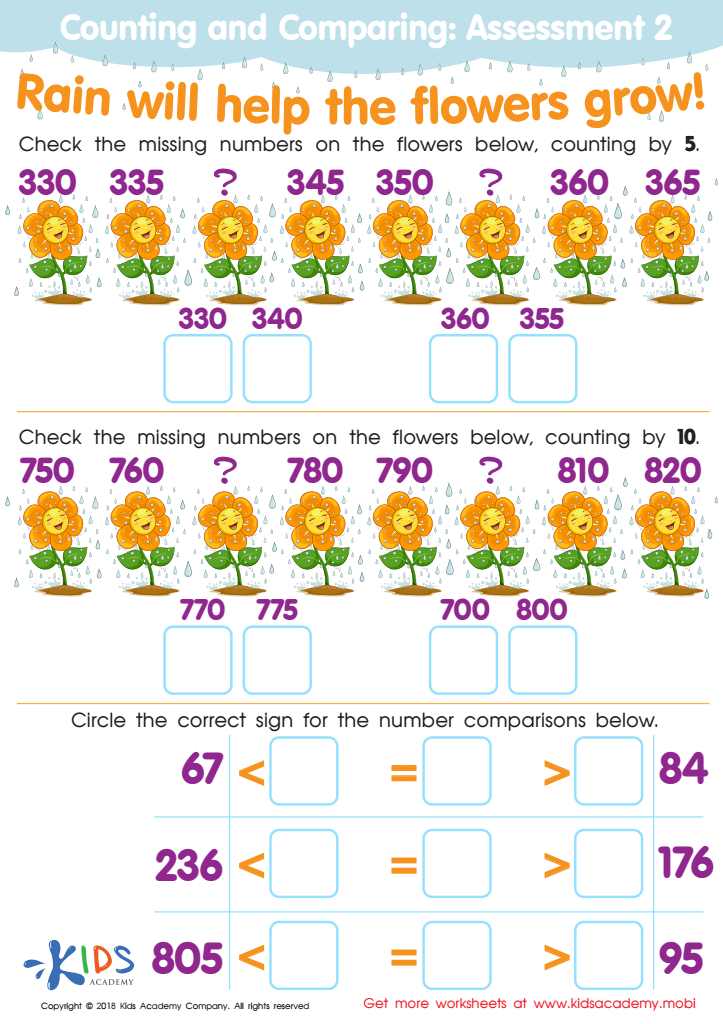

Counting and Comparing: Assessment 2 Worksheet
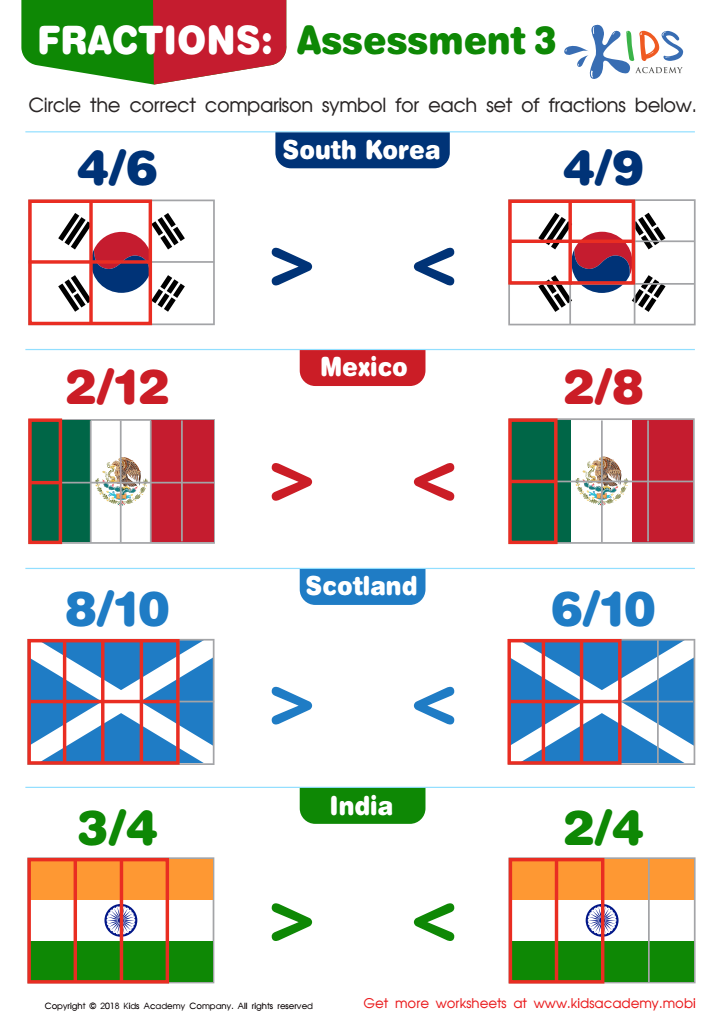

Fractions: Assessment 3 Worksheet
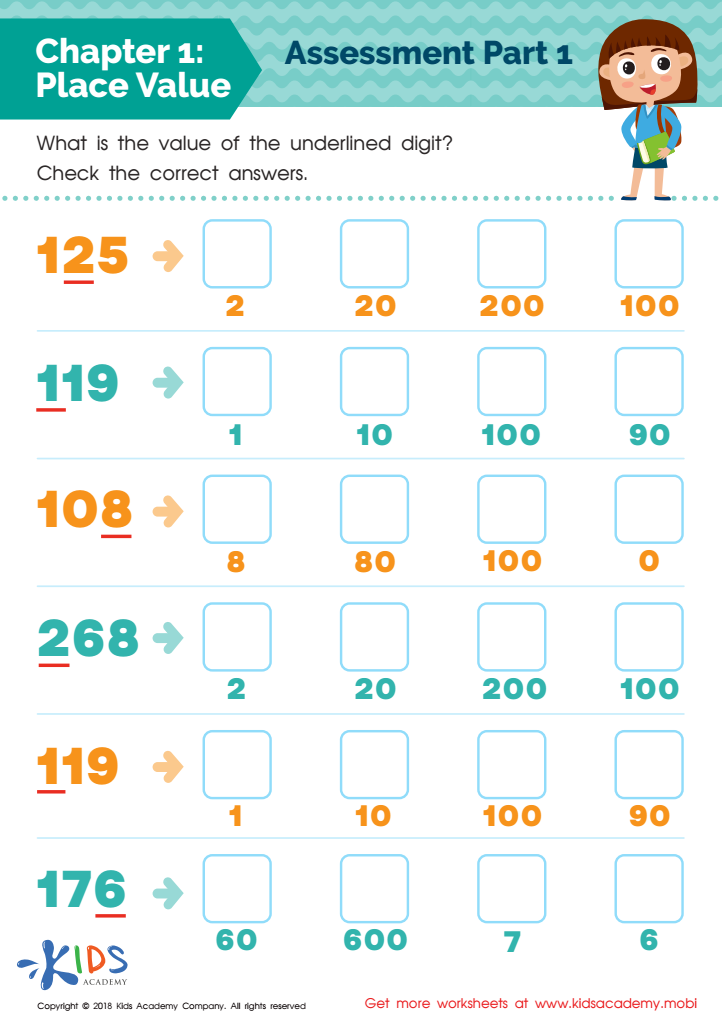

Place Value: Chapter 1 Worksheet
Numbers worksheets activities stand as an invaluable tool in the educational process, particularly in the foundational stages of learning mathematics. The utility of these activities stretches across various aspects of learning and development, making them a cornerstone in fostering numerical literacy among students.
Firstly, numbers worksheets activities are designed to enhance comprehension. By engaging with these worksheets, students are exposed to numbers in a variety of contexts, allowing them to grasp the concept of numbers, understand their value, and recognize their representations. This repeated exposure solidifies their understanding and makes abstract concepts more tangible.
Moreover, these activities foster critical thinking and problem-solving skills. As students work through the challenges presented in numbers worksheets, they learn to apply logical reasoning, identify patterns, and solve problems systematically. This not only aids in their mathematical learning but also equips them with skills that are transferable to other areas of study and daily life.
Another advantage of numbers worksheets activities is the personalized pace of learning they offer. Each student can work through the worksheets at their own speed, ensuring they fully comprehend each concept before moving on. This self-paced approach reduces anxiety and frustration often associated with learning new material, especially in a subject as potentially daunting as mathematics.
Additionally, numbers worksheets activities provide immediate feedback. Whether in a classroom setting, where a teacher can offer direct assistance, or through self-correction, students can quickly identify and learn from their mistakes. This immediate feedback loop is essential for effective learning and retention of new information.
Lastly, these activities are incredibly versatile. They can be adapted to suit various learning styles, whether visual, auditory, or kinesthetic, making them an effective tool for a diverse range of learners.
In conclusion, numbers worksheets activities are not just a method of learning but a comprehensive approach to building a solid foundation in numeracy. They offer a multifaceted educational experience that enhances comprehension, encourages critical thinking, allows for personalized learning, provides immediate feedback, and accommodates different learning styles, making them an indispensable part of mathematics education.
 Assign to the classroom
Assign to the classroom











